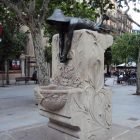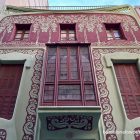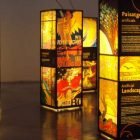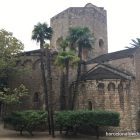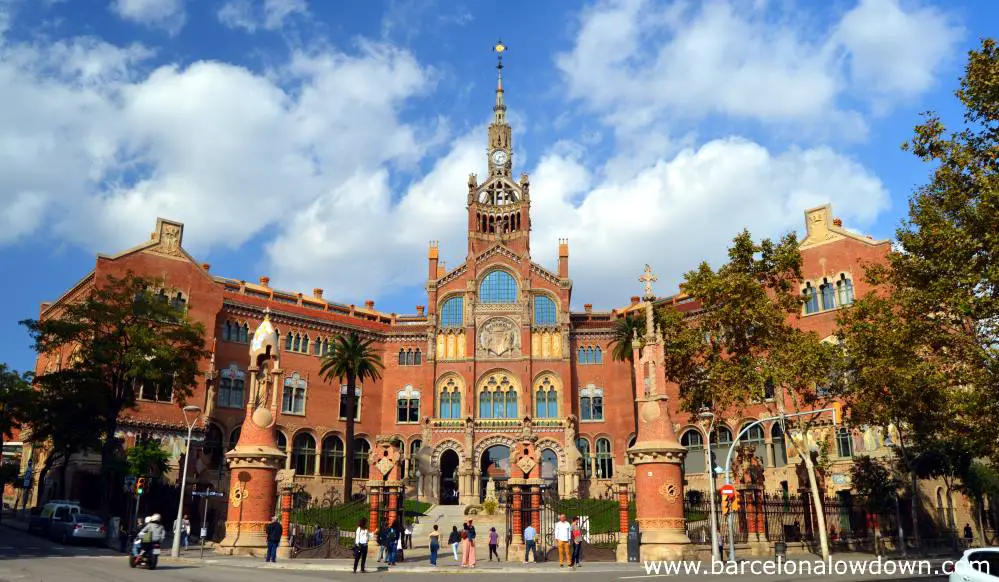
A Short walk from the Sagrada Familia, the Recinte Modernista de Sant Pau is one of Barcelona’s most interesting architectural and historical attractions.
Built at the beginning of the 20th century, the site comprises twenty-seven Art Nouveau buildings and was still a functioning hospital as recently as 2009.
In 2014, after almost five years of extensive restoration, the former hospital reopened as an open-air museum where visitors can wander freely and enjoy the unique architecture and tranquil surroundings.
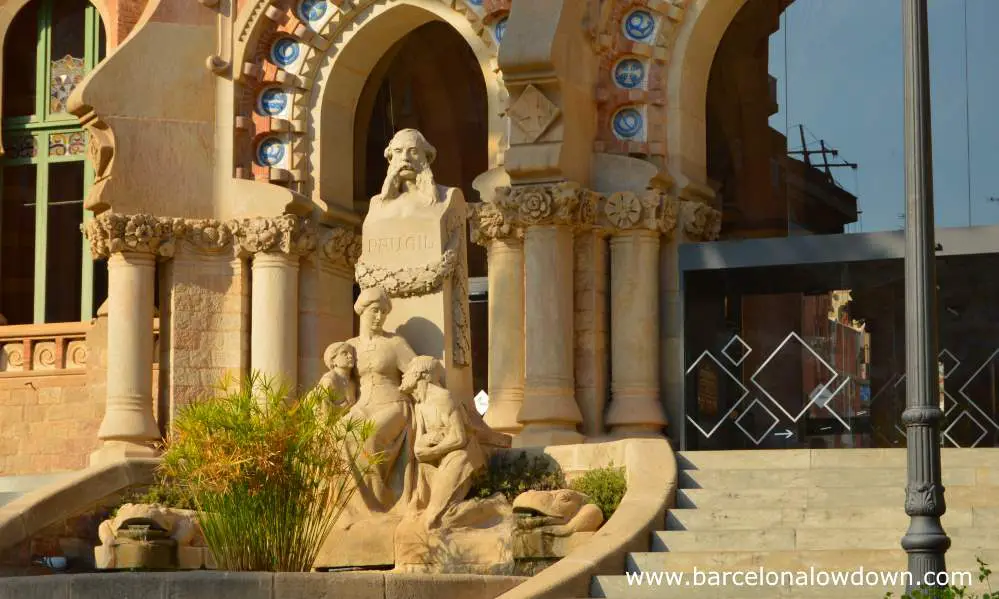
History of the Hospital de Sant Pau
The Hospital de la Santa Creu was founded in 1401 by merging six smaller medieval hospitals.
When wealthy banker Pau Gil Sarra died in 1896, he left 3,060,000 pesetas (approximately 19,000€) to construct a new public hospital.
In 1902, work began on a state-of-the-art new hospital complex designed by architect Lluís Domènech i Montaner. In 1916 the Hospital de la Santa Creu, now renamed as L’Hospital de la Santa Creu I Sant Pau, transferred to the new location which was finally inaugurated by King Alfonso XIII in 1930.
The revolutionary new hospital comprised of twenty-seven pavilions surrounded by gardens and interconnected by a system of tunnels that were used to transfer patients from operating rooms to the wards.
Eighty years later, a new modern hospital was built on the north side of the grounds. When the new facilities were inaugurated in 2009, the old hospital closed and underwent extensive renovation. Currently, twelve of the pavilions have been painstakingly restored.
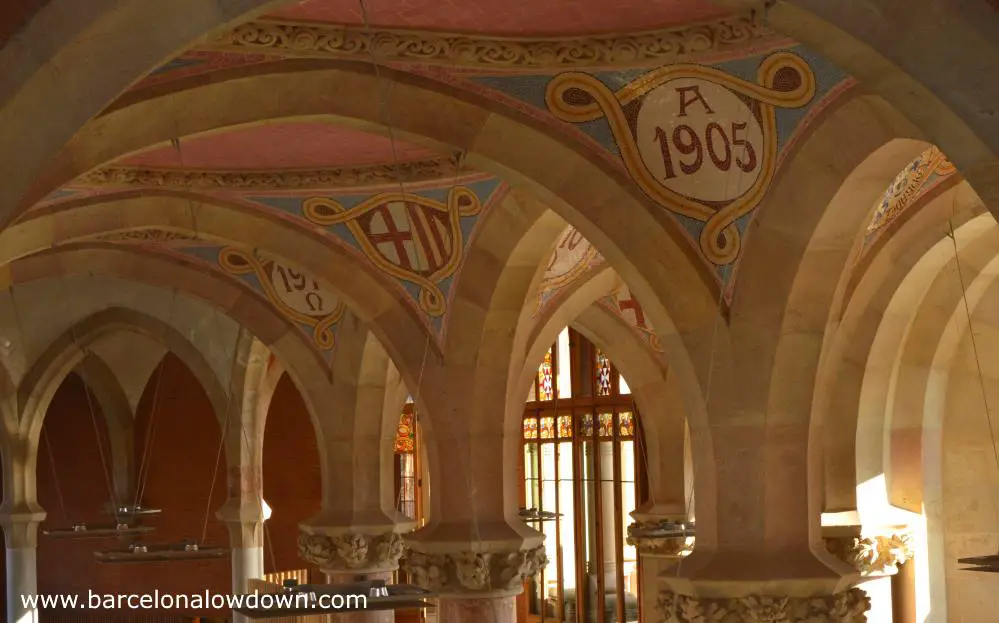
About the Sant Pau Art Nouveau Site
In 2014, the complex reopened as the Recinte Modernista de Sant Pau, or Sant Pau Art Nouveau Site in English.
Currently, six of the restored pavilions, including the Administration Building, Sant Rafael Pavilion, Sant Jordi Pavilion and Operations Pavilion, are open to the public.
Other buildings are used by organisations such as the World Health Organisation, Casa Asia, the United Nations and the European Forest Institute.
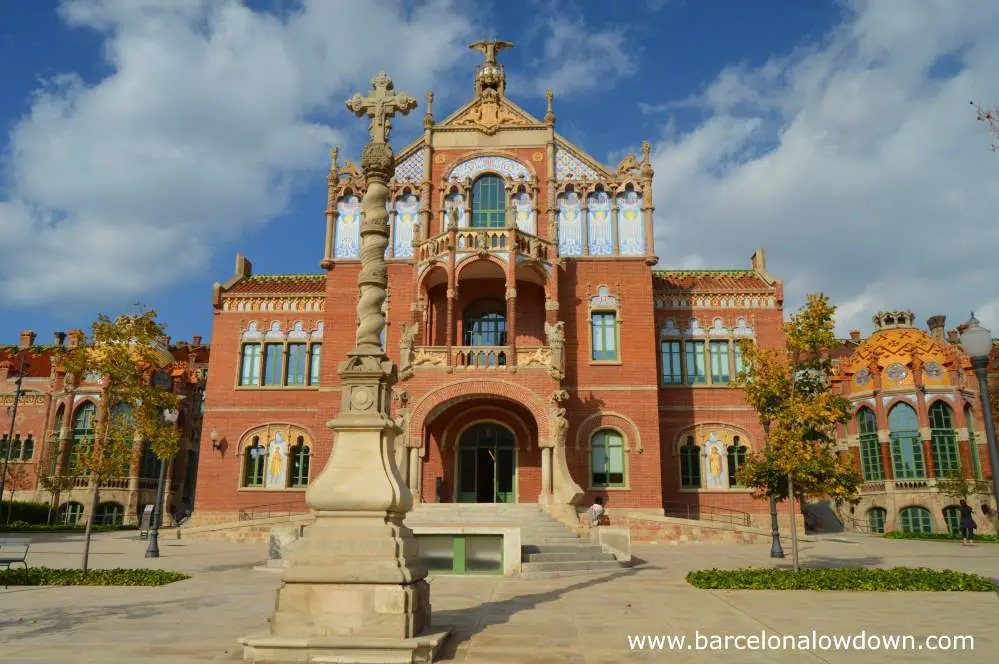
Visiting the Sant Pau Art Nouveau Site
The visit begins in the underground tunnel system that connects the buildings above. Ghostly black and white images projected on the white-tiled walls portray how the passages were used to transport patients between wards and the operating theatre.
Leaving the tunnels, we enter the St. Salvador Pavilion, which features a series of display boards that explain the history of the hospital and the work of Lluís Domènech i Montaner.
Throughout the visit, be sure to look up frequently so as not to miss the decorated ceilings.
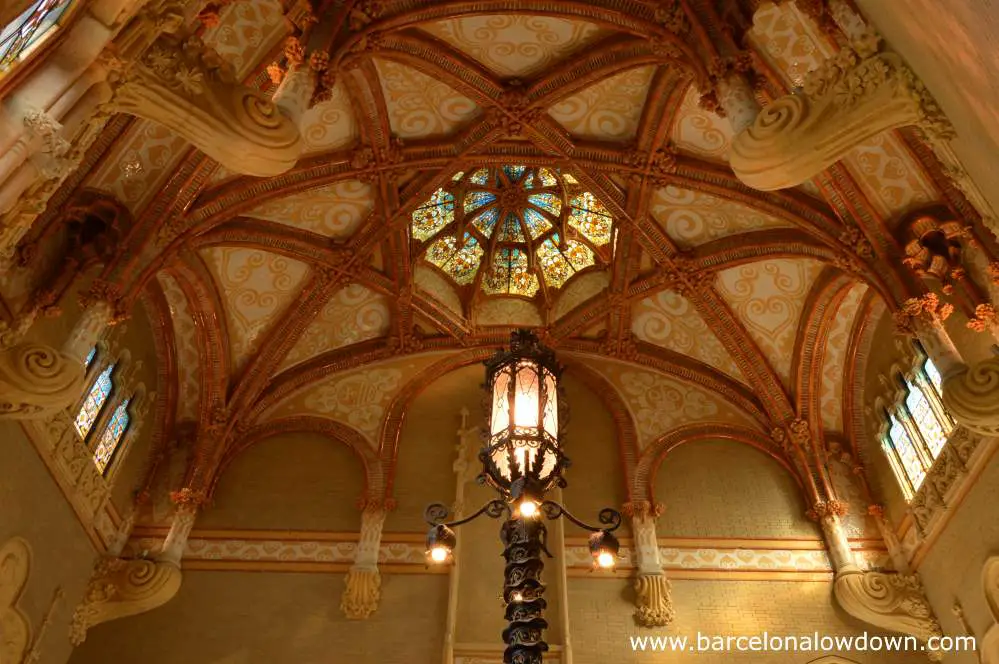
Although not all of the pavilions are open to the public, you are free to explore the grounds and admire the exteriors, which are decorated with statues and mosaics recounting the hospital’s history. The letters PG appear frequently, a tribute to the hospital’s main benefactor, Pau Gil.
One of the most impressive buildings is the central Operations Pavilion, which includes an operating theatre with large windows and a glass roof to maximise available light.
You should also take a look inside the Sant Rafael Pavilion, which has been restored and furnished as it would have been during the 1920s, complete with hospital beds and antique cast-iron radiators.
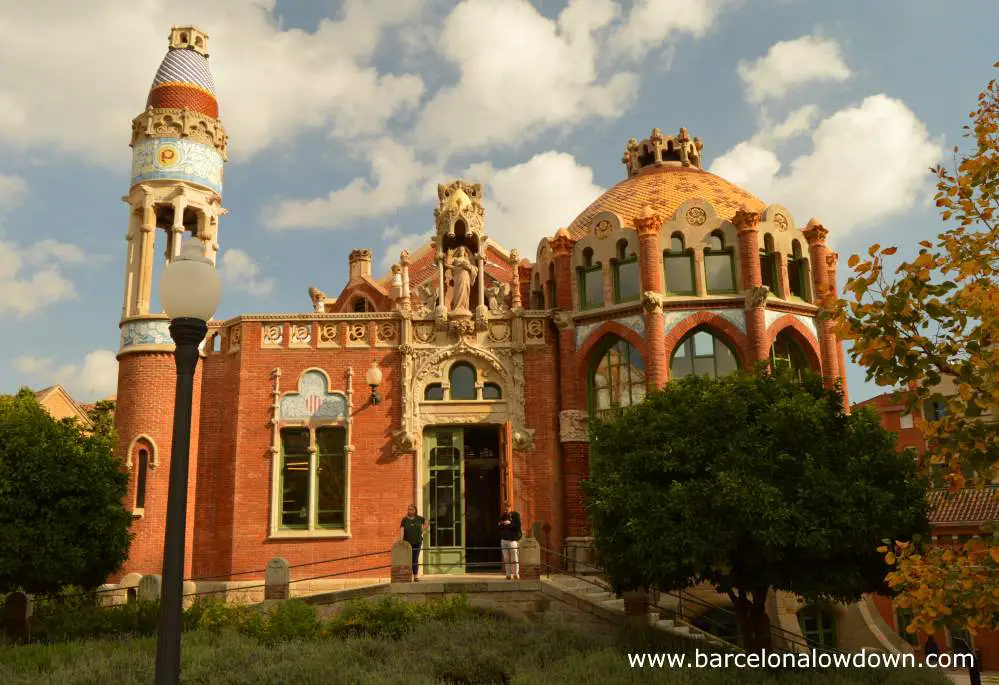
Finally, the jewel in the crown is the elegant Administration Pavilion, which is the largest and most highly decorated of the buildings. Tiles and mosaics feature prominently in Catalan Modernism, and Lluís Domènech i Montaner was a leading exponent. Even so, the variety of designs in the Administration Pavilion is extraordinary.
When this happens, some areas close earlier than normal.
If visiting during the afternoon, I recommend that you check with staff at the ticket desk on arrival to see whether any buildings will be closing early.
This Wikipedia page gives an introduction to the mosaics which can be seen throughout the Sant Pau Art Nouveau Site.
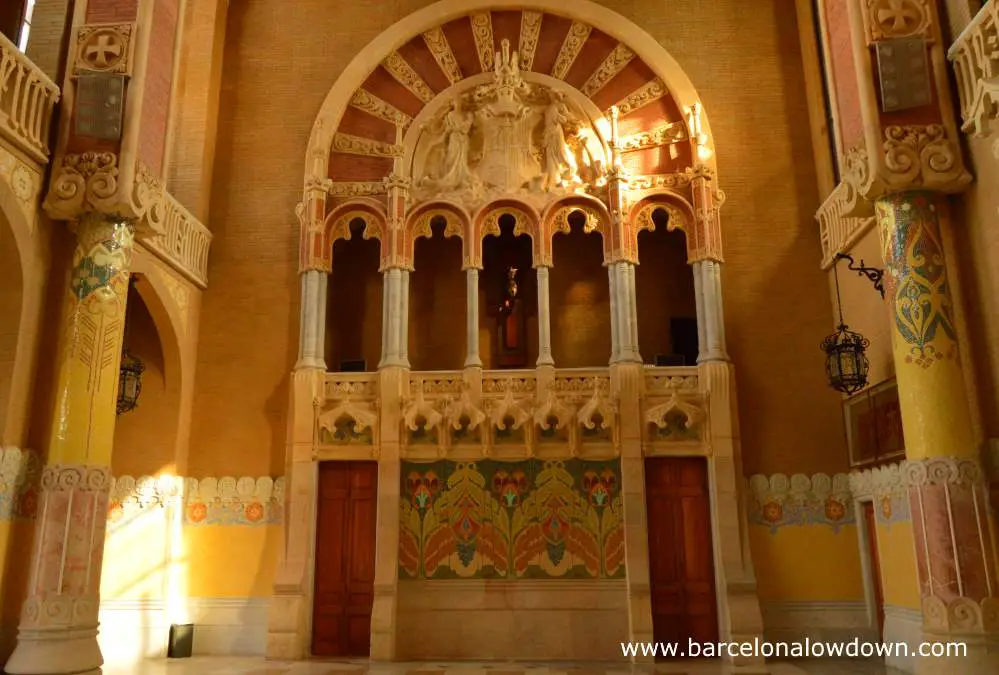
Location
Carrer de Sant Antoni Maria Claret 167, Barcelona
How to get there
The nearest metro stop is Sant Pau I Dos de Maig on the L5 blue line. Take the Cartagena exit from the metro station, then walk one block uphill to the entrance.
The Barcelona City Tour bus stops by the main entrance. Stop number 12 on the grey line.
Opening hours
April – October:
Mon – Sat 09:30 – 18:30
Sundays and public holidays, 09:30 – 14:30
November – March:
Mon – Sat 09:30 – 16:30
Sundays and public holidays, 09:30 – 14:30
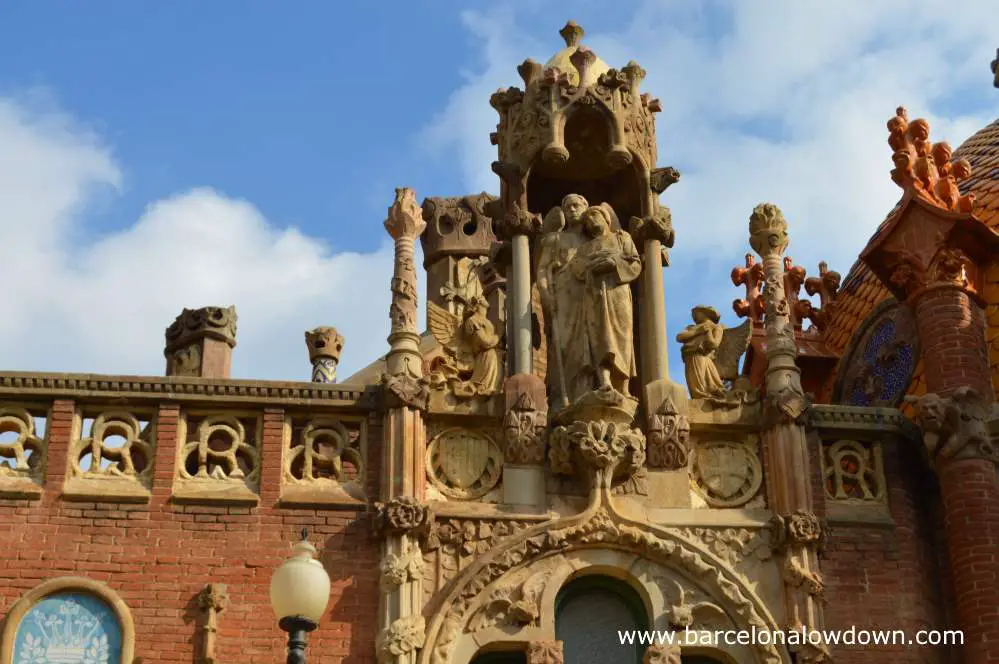
Entry fee
Adults (30 and over) €17 (Guided tour €21.00)
Teens and young adults (12 – 29) €11.90 (Guided tour €14.70)
Children under 12 years FREE
Audio guide €4
Discounts
The Sant Pau Art Nouveau Site is one of the ten attractions covered by the Barcelona Card Modernista.
20% discount with the Barcelona Card and Barcelona Card Express.
The site can be visited free of charge on the first Sunday of every month plus the following dates: Feb 12th, April 23rd, May 8th and Sept 24th.
Information in English
Yes, there are display boards and leaflets in English, as well as an English-language audio guide.
Time needed to visit
You should allow approximately an hour and a half to visit the Sant Pau Art Nouveau Site. The guided tour lasts approximately 1 hour and 15 minutes.
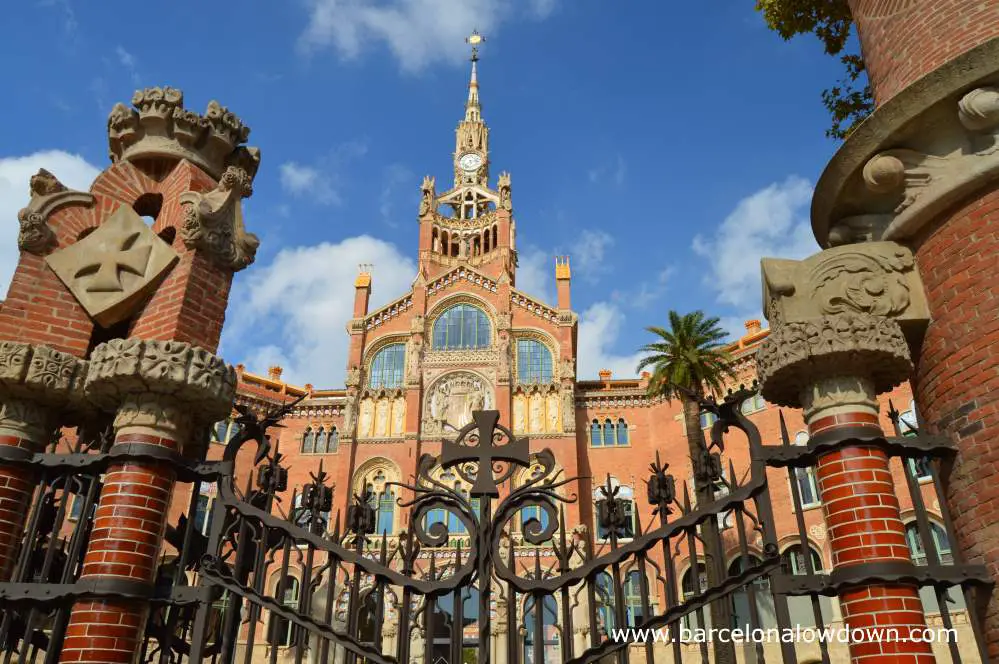
Other attractions nearby
- Avinguda Gaudí
- Parc de Les Aigües
- The Sagrada Familia Basilica
- Turó de la Rovira
- Park Güell
Map
Carrer de Sant Antoni Maria Claret 167, Barcelona

